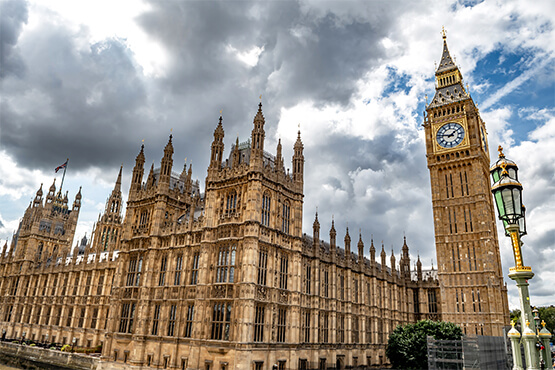In R (on the application of Enlli Williams) v Cyngor Gwynedd EWHC 2395, the claimant successfully challenged Cyngor Gwynedd’s decision to confirm an Article 4 Direction. The challenge was brought on the sole ground that the decision was reached on a mistaken basis.
The High Court found that the officer reports and accompanying documents materially misled Cabinet members by giving the incorrect impression that all changes of use would be controlled by the Article 4 Direction.
This decision provides important lessons for local planning authorities about the need for clarity in officer reports and realistic assessments of what Article 4 Directions can achieve, as well as key considerations for property owners affected by such Directions.
Browne Jacobson acted on behalf of the claimant in these proceedings.
Background
Communities across Wales have experienced mounting pressure from the rising number of second homes and short-term holiday lets. The Welsh Government recognised the need to help local planning authorities manage this through amendments to the development management system and planning policy in Wales.
The legislative response
In November 2021, the Welsh Government published a consultation document on amendments to the Town and Country Planning (General Permitted Development) Order 1995, which included proposals for reforming Article 4 Direction procedures. The consultation was open for responses until 15 February 2022.
The Welsh Government wanted to support local planning authorities in controlling the exercise of permitted development rights where this would harm local amenity or the proper planning of the area. The procedure at that time for making an Article 4 Direction, including the requirement for all Directions to be confirmed by the Welsh Ministers, was seen as an obstacle to greater use of Directions.
Implementation
The new Article 4 procedures were introduced by the Town and Country Planning (General Permitted Development etc.) (Amendment) (Wales) Order 2022, which came into force in Autumn 2022.
This legislative framework set the stage for local planning authorities across Wales to use Article 4 Directions as a tool to manage the impact of second homes and holiday lets on their communities. Cyngor Gwynedd was one of the first authorities to attempt to use these new powers.
Article 4 Directions
Article 4 Directions are one of the tools available to local planning authorities which allow them to respond to the particular needs of their area.
They provide local planning authorities with the ability to restrict “permitted development” rights which would otherwise apply by virtue of the Town and Country Planning (General Permitted Development) Order 1995 where it is considered expedient to do so.
An Article 4 Direction does not prevent development. Instead, it requires planning permission to be obtained from the local planning authority so the planning impacts of the development can be considered before a decision is taken on whether it can proceed.
Typically, permitted development rights allow a change of use without planning permission between different types of dwellinghouses. Following amendments in 2022, there are now three use classes in Wales:
- main residence (C3 main residences occupied for more than 183 days per year).
- second/holiday homes (C5 second homes occupied for 183 days or fewer), and
- short term lets (C6 short-term holiday lets not exceeding 31days per letting).
An Article 4 Direction may remove these permitted development rights. The removal of such rights, however, are limited to “development” which constitutes a material change of use. Therefore, changes of use that do not amount to a material change remain outside of the local authority’s control.
Any Article 4 Direction seeking to remove these type of permitted development rights would need to be supported by local evidence highlighting the impact of second homes and short-term lets on specific communities as part of a co-ordinated response.
Julie James MS, the Minister for Climate Change at the time, wrote to the local planning authorities in September 2022 explaining that any Article 4 Direction would need to be supported by robust local evidence highlighting the impact of second homes and short-term lets on specific communities as part of a co-ordinated response, and would need to evidence effective community consultation.
Material change of use
Whether a change of use from a dwelling house to use as a second home or holiday letting amounts to a material change of use is a question of fact and degree in each case.
As Sullivan LJ explained in Moore v Secretary of State for Communities and Local Government [2013] JLP 192 neither extreme proposition is correct: using a dwelling house for commercial holiday lettings will not always amount to a material change of use, nor can it never amount to one.
Cyngor Gwynedd’s decision
On 13 June 2023, Cyngor Gwynedd’s Cabinet approved the making of an Article 4 Direction with deferred effect. The decision at that stage was that the Direction would come into effect on 1 September 2024 subject to being confirmed.
The public notice of that decision confirmed that certain permitted development rights were being removed and that development to which such rights had attached would require planning permission after the coming into force of the Direction. The Direction was made by Council on 19 July 2023, with the notice of the Direction being given by the Council on 2 August 2023.
There was a period of public consultation after the June 2023 decision. The matter then came before the Communities Scrutiny Committee on 16 May 2024. The report to that committee said that it was “hoped that introducing the Article 4 Direction will provide an opportunity to assess the propriety of any proposal that involves changing the use of a residential home to holiday use, be that use as a holiday let or a second home”. The Communities Scrutiny Committee recommended that the Cabinet confirm the Direction and the matter went back to the Cabinet.
The Cabinet considered the issue on 16 July 2024. The Officers’ Report was accompanied by a report on the public engagement exercise; an impact assessment; and a “paper justifying the introduction of the Article 4 Direction”.
Conclusion
This judgment serves as an important reminder that whilst Article 4 Directions are valuable tools for managing the impact of second homes and holiday lets on Welsh communities, they must be implemented with precision, clarity, and a realistic understanding of their scope.
The decision underscores that procedural reforms do not eliminate the fundamental requirement for lawful decision-making based on accurate information.
Discover more
Related expertise
You may be interested in
Press Release - Firm news
Browne Jacobson moves into new Cardiff office at One Central Square
Legal Update - Building safety
Building safety in Wales
Legal Update
Homelessness law reform in Wales: What the new Bill means for local authorities and housing associations
Opinion
Welsh Government's £36m development loan scheme: A vital step towards meeting 20,000 home target
Legal Update
The first Article 4 Direction in Wales successfully challenged in the High Court
Published Article
Devolution revolution?
Legal Update
The Homelessness and Social Housing Allocation (Wales) Bill: Can it really end homelessness in Wales?
Legal Update
Independent Water Commission report: Understanding key recommendations
Legal Update
A new planning bill for Wales: What will this mean?
Legal Update
Consultation on proposed changes to Estyn inspection regime in Wales
Press Release
Browne Jacobson appointed to Adra legal framework as housing association launches 2030 vision
Press Release
Browne Jacobson reappointed to Welsh Government Commercial Division panel
Legal Update - English devolution
Practical guide to the English Devolution Whitepaper
Press Release - English devolution
Comment on English devolution white paper
Press Release
King’s Speech 2024: Reaction from Browne Jacobson lawyers
Legal Update
The Air Quality and Soundscapes (Wales) Act 2024: How might the Act affect local authorities in Wales?
Press Release
Browne Jacobson supports establishment of East Midlands Combined County Authority
Press Release
At the forefront of society’s biggest issues - a reflection of our public sector work throughout 2023
Press Release - Firm news
Browne Jacobson bolsters presence in Wales with three new appointments
On-Demand
Practical Public Law Practice in Wales - The Welsh Admin Court and legitimate expectation
Press Release
Browne Jacobson’s public law team recognised in Wales Legal Awards 2023
Press Release
Browne Jacobson announces appointment of Barrister to its Cardiff office
Legal Update
Browne Jacobson grows Cardiff team with two new appointments
Press Release
Browne Jacobson advising the Welsh Government on the delivery of significant number of renewable energy projects
Press Release - #BeingBrowneJacobson
Our new office in the heart of Cardiff city centre
Opinion
Is over centralisation hindering economic growth?
Legal Update
The Retained EU Law
Created at the end of the Brexit transition period, Retained EU Law is a category of domestic law that consists of EU-derived legislation retained in our domestic legal framework by the European Union (Withdrawal) Act 2018. This was never intended to be a permanent arrangement as parliament promised to deal with retained EU law through the Retained EU Law (Revocation and Reform) Bill (the “Bill”).
Legal Update
Significant intervention by Senedd Environmental Committee
A Senedd committee has made a significant intervention in relation to post-Brexit environmental protection arrangements in Wales.
Legal Update
Welsh Human Rights Bill: A parting of the ways?
The Welsh Government has published a report setting out a blueprint for devolution of justice and policing in Wales that pulls no punches in making the case for taking greater control from Westminster.
Legal Update
The Introduction of the Social Partnership and Public Procurement (Wales) Bill by the Welsh Government
Legal Update
Changes to the statutory framework for local government in Wales
The Local Government and Elections (Wales) Act 2021 (“the Act”) establishes a new and reformed legislative framework for Welsh local government elections, democracy, governance and performance. Many of the most significant changes contained in the Act came into force earlier this month.
Published Article
Building systems – the lessons to be learned
At Browne Jacobson, we have been working with NHS and local government bodies at national and more local levels on this system reform, and so this is a question we’ve been working to answer for some time.
Press Release
Browne Jacobson’s energy & infrastructure specialists advise Welsh European Funding Office on major tidal renewable energy project
Browne Jacobson’s specialist energy & infrastructure lawyers have advised the Welsh European Funding Office (WEFO) on a significant £31m funded tidal energy project, located in Anglesey, off the North West coast of Wales.
Legal Update
Aarhus legal costs in environmental claims
Legal Update
Wynne-Finch and others v Natural Resources Body for Wales [2021] EWCA Civ 1473
Historic exceptions of mines and minerals did not include mudstone, the common rock of the district.






























